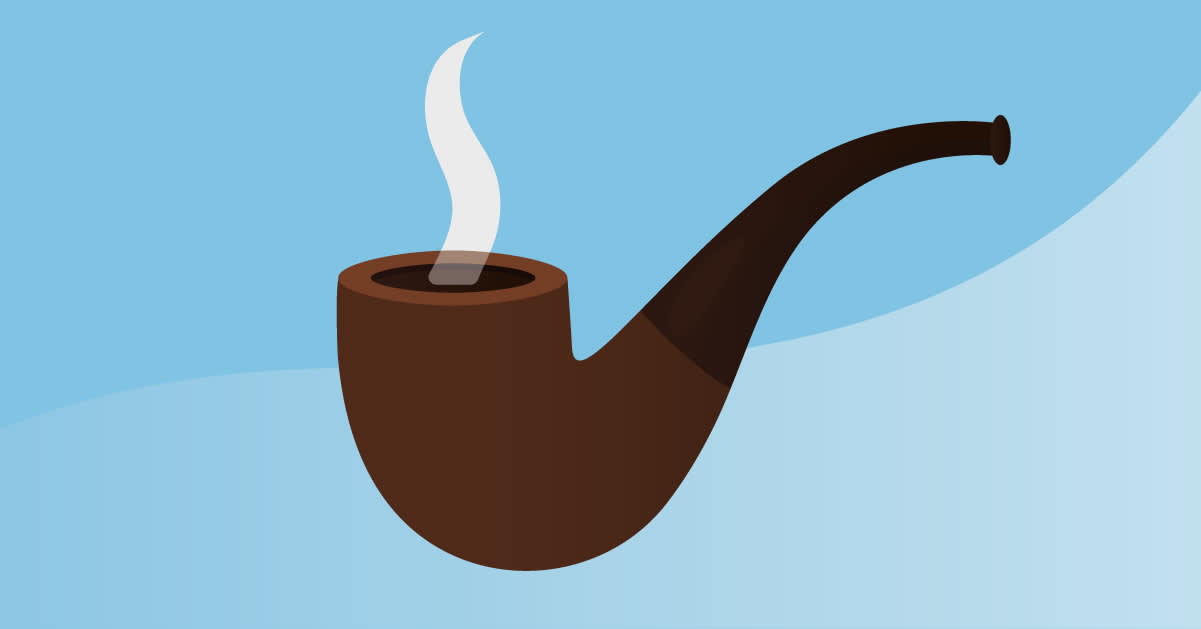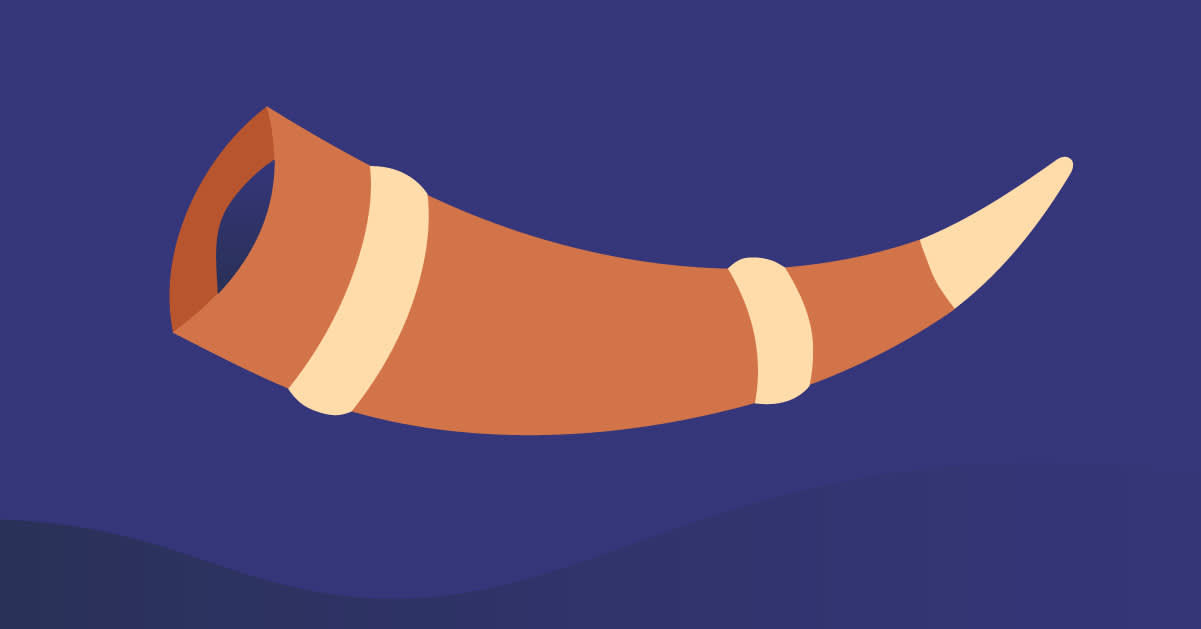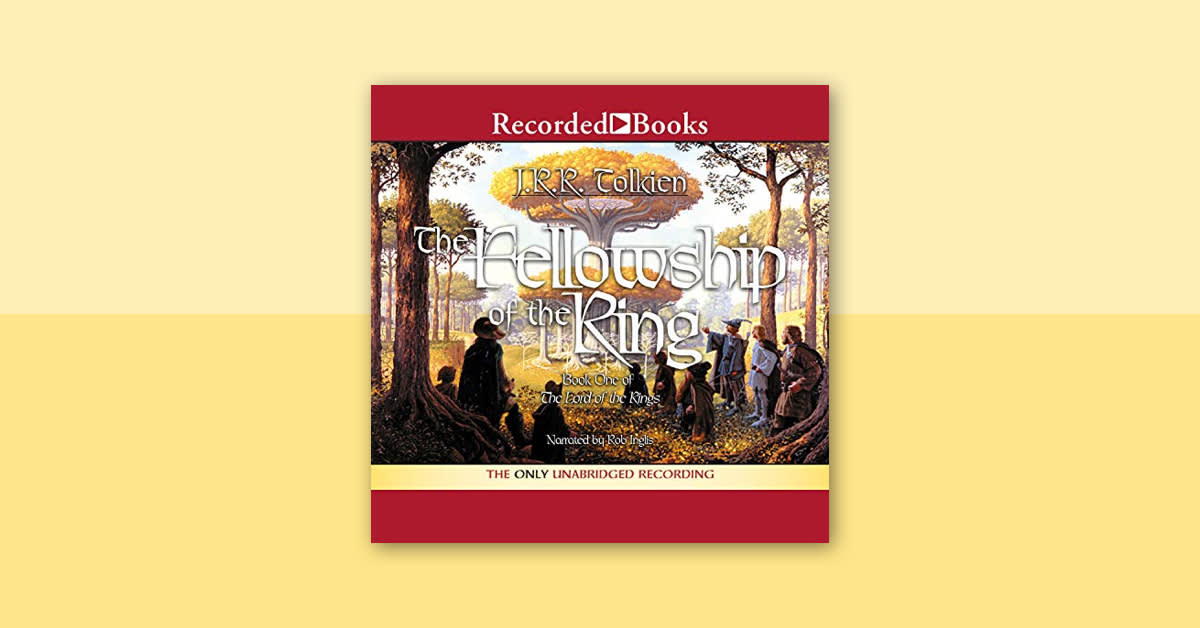The Lord of the Rings by J.R.R. Tolkien has been an undeniable pillar of fantasy and pop culture at large for more than 50 years. And Peter Jackson’s epic movie trilogy only further cemented its place as one of the most popular and beloved series of our time. Whether you're a longtime fan of the books, a lover of the movies, or totally new to the series, it's likely you've got some questions about the major characters. One of the three Hobbits who set out from the Shire alongside Frodo, Merry comes into his own during the War of the Ring and plays a small but essential part in the larger story unfolding around him. His actions and insight alter the course of events, dramatically. Merry, like his dear friend and comrade Pippin, is proof that no one is ever too small to change the world.
Who is Merry?
Meriadoc Brandybuck, known to most as Merry, is a Hobbit hailing from the Brandybuck family of Buckland in the Shire. He lives a mostly ordinary life until he gets caught up in the War of the Ring, accompanying his friend and cousin Frodo on his mission to destroy the Ring. Upon his return, Merry is renowned in the Shire for his many great deeds. He becomes the Master of Buckland and is given the moniker Meriadoc the Magnificent.
Family Tree: The Brandybucks of Buckland
Merry is descended from a long line of Brandybucks, going all the way back to Gorhendad Oldbuck of the Marish, the Hobbit who began building the magnificent Brandy Hall and changed the family name. Merry's father, Saradoc Brandybuck, married Esmeralda Took, the sister of Paladin Took II—this makes Merry and Pippin, Paladin's son, first cousins. Merry and Frodo are also cousins, though they are a bit more distantly related. Merry's grandfather, Rorimac Brandybuck, and Frodo's mother, Primula Baggins, were siblings, making Merry and Frodo first cousins once removed.
Merry grew up in Brandy Hall, the ancestral home of the Brandybuck clan. Many generations lived together in this sprawling establishment, as was the custom of many Hobbit clans, including the Tooks. Because Buckland lies across the Brandywine River from the rest of the Shire, Merry, like many Bucklanders, is more at ease with boats and water than most Hobbits. Other than their comfort around water and their general willingness to go on adventures, Bucklanders are similar to the rest of the Hobbits of the Shire. They enjoy the pleasure of home, especially pipe-weed after a good meal.
Merry’s Backstory and Personality
Though Tolkien doesn't reveal much about Merry's early life, he is already good friends with his cousins Pippin and Frodo when the saga begins. When the Hobbits enter the Old Forest while fleeing the Shire at the beginning of The Fellowship of the Ring, Merry mentions having been there a few times before. Though he is still a young man during the events of the War of the Ring, he's already had his fair share of smaller adventures and scrapes around the Shire.
Merry is 36 at the beginning of The Lord of the Rings, the second-youngest member of the Company. He's already come of age—Hobbits officially become adults at 33—when he sets out on the journey, and thus displays a bit more maturity and knowledge than his best friend and younger cousin, Pippin. He has a lifelong interest in lore, history, and especially maps, revealing to his friends in The Fellowship of the Ring that he spent their time in Rivendell studying the books and maps kept there. His interest in lore only grows after his many adventures during the War of the Ring. In his later years, he writes several books about the history of the Shire, including Herblore of the Shire, Reckoning of the Years, and Old Words and Names in the Shire.
Merry’s Weapons, Skills, and Abilities
Weapons
Hobbits are not natural fighters and generally avoid carrying weapons. Merry is no exception. However, he does carry a blade throughout The Lord of the Rings, a dagger that ends up playing a crucial role in the defeat of Sauron. In The Fellowship of the Ring, the Hobbits are waylaid by a barrow-wight in the Barrow-downs east of the Shire. Tom Bombadill rescues them from the wight and finds four daggers, which he gives to the Hobbits. These blades, known as daggers of Westernesse, were wrought by smiths of the kingdom of Arthedain during the Third Age. Merry carries this blade faithfully, eventually using it to stab the King of the Nazgûl during the Battle of the Pelennor Fields.
Other Skills
Merry is sturdy and resourceful throughout his many adventures; his skill with boats proves useful several times. Merry also displays his extensive knowledge of herbs, especially pipe-weed, throughout the books, though this skill does not prove especially useful.
Merry’s Key Relationships
Pippin
Merry and Pippin are good friends as well as first cousins. As the two youngest members of the Company that sets out from Rivendell, they are often seen laughing and joking together—a dynamic played up further in the movies. However, Merry and Pippin also look out for and take good care of each other. Backed by their loyalty, their combined ingenuity gets them out of many dangerous situations.
Even after the fellowship breaks up at the end of The Fellowship of the Ring, Merry and Pippin remain together. They're captured by Orcs, manage to escape through luck and skill, and meet the Ent Treebeard in Fangorn Forest. They're separated for the first time only after the destruction of Isengard, the stronghold of the traitorous wizard Saruman—and not by choice.
After the fall of Isengard, Saurman's servant Wormtongue tosses one of the palantíri, ancient seeing stones made by the Elves in the First Age, out of the tower at the assembled host below. Pippin picks it up, overcome with an unnatural curiosity. Later that night, he looks into the palantír, which is being controlled by Sauron himself, and narrowly escapes with his life. To keep Pippin safe, out of trouble, and away from the temptation of the palantír, Gandalf rides away in haste, taking Pippin with him to the city of Minas Tirith. Merry remains behind with Aragorn and eventually rides to war with the people of Rohan. Thus, Merry and Pippin split up only because their older, wiser companions demand that they should. They're reunited in the aftermath of the Battle of the Pelennor Fields outside Minas Tirith.
King Theoden
During the final battles of the War of the Ring, Merry pledges himself to King Théoden of Rohan as a swordthain. He develops a friendship with the old king, sharing stories of the Shire and its herblore. And though Théoden forbids Merry from riding to the aid of Gondor with the rest of the Rohirrim, Merry goes along anyway. A faithful friend, he is with Thėoden when he dies. Their friendship sparks a lifelong bond between Merry and the people of Rohan, including Thėoden's successor, King Éomer.
Key Moments from The Lord of the Rings
The Fellowship of the Ring
Merry has quite a few important moments throughout The Lord of the Rings. In The Fellowship of the Ring, he is instrumental in helping Frodo escape the Shire. Though Frodo's escape was condensed for the movies, in the book it's actually an elaborate plot that unfolds over many months. After helping Frodo leave the Shire stealthily, Merry leads the Hobbits through the Old Forest in order to avoid the Black Riders that are following them.
However, his curiosity and willingness to step up sometimes get him in trouble. In the village of Bree, after having escaped the Old Forest and the Barrow-downs, Merry decides to take an evening stroll, despite the danger the Hobbits are in. He sees a Black Rider, and though he comes to his senses before the Rider sees him, it's a close call.
The Two Towers
In The Two Towers, Merry and his best friend Pippin both come into their own. They are captured by Orcs at the end of The Fellowship of the Ring, but manage to escape. While this is due partly to forces outside their control—the Orcs are killed by the Rohirrim—Merry exhibits both skill and quick thinking during their escape, fooling an Orc into believing he and Pippin have the ring so the Orc will bring them to safety.
After their escape, Merry and Pippin find themselves in Fangorn forest. This is where Merry's love of maps and knowledge of geography and history come to their aid. Pippin has no idea where they are, but Merry knows a bit about the history of Fangorn and where it is in relation to the kingdoms of Gondor and Rohan.
In Fangorn, Merry and Pippin meet the Ent Treebeard, an encounter that changes the course of War of the Ring and the fate of Middle-earth. Merry and Pippin bring Treebeard news of the outside world—but more important than the news itself is their presence among the Ents. Their tidings, along with their connection to the outside world, cause Treebeard to finally make a decision. He gathers the Ents together to go to war against Isengard, and it is the Ents who lay Isengard to waste. It is impossible to say whether the Ents would have resolved to go to war had Treebeard not encountered Merry and Pippin, but it is clear that their meeting with Treebeard was one of the strangest yet most impactful meetings of the War of the Ring.
The Return of the King
Merry's biggest moment of daring and renown comes during the Battle of the Pelennor Fields in front of the city of Minas Tirith. Though he pledges himself to King Théoden's service, the king forbids him to ride to war. So Merry stows away with another rider of Rohan who is likewise forbidden to ride with the king: the Lady Éowyn. During the battle, he and Éowyn come face to face with the Lord of the Nazgûl, once known as the Witch-king of Angmar, and Sauron's deadliest servant. Éowyn slays his winged steed, and in the moments before the Nazgûl tries to kill her, Merry stabs his ankle with the dagger of Westernesse, one of the few blades in existence with the power to harm the Nazgûl. It distracts him long enough for Éowyn to kill him, fulfilling the age-old prophecy that the Nazgûl would not be killed by any living man.
But it is not his part in the death of the Witch-king for which Merry is best known among his people. After the fall of Sauron, and after Aragorn reclaims the throne of Gondor, the Hobbits return home to the Shire. There they find that Saruman, though robbed of his staff, has not lost all his power. He has taken control of the Shire, ruling it by proxy via ruffians who like to boss Hobbits around for fun. This is where Merry and Pippin finally have a chance to display how much they've grown, and how powerful they've become. Merry, along with Pippin, Frodo, and Sam, deal swiftly with the ruffians, raising the Shirefolk and organizing the resistance. Merry goes down in Shire history as the chief orchestrator of the Battle of Bywater, the last battle of the War of the Ring, in which the Hobbits defeat the ruffians for good.
Merry’s Life after the War of the Ring
Family and Life in the Shire
After the War of the Ring, Merry settles back into life in the Shire. He becomes the Master of Buckland and marries Estella Bolger. Though Tolkien does not name Merry's children, it is clear he has at least one son, as he eventually turns over the rule of Buckland to him.
Final Travels and Death
At age 102, Merry receives a message that King Éomer of Rohan would like to see him again. Merry and Pippin leave their offices to their sons and ride off to Gondor, leaving the Shire for the last time. In the appendix to The Lord of the Rings, which appears at the end of The Return of the King, Tolkien describes Merry's last years: "It was heard after that Master Meriadoc came to Edoras and was with King Éomer before he died in that autumn. Then he and Thain Peregrin went to Gondor and passed what short years were left to them in that realm, until they died and were laid in Rath Dínen among the great of Gondor."
Best Merry Quotes
"You can trust us to stick to you through thick and thin—to the bitter end. And you can trust us to keep any secret of yours—closer than you keep it yourself. But you cannot trust us to let you face trouble alone, and go off without a word. We are your friends, Frodo…We are horribly afraid—but we are coming with you; or following you like hounds." —The Fellowship of the Ring
"If you have to go, then it will be punishment for any of us to be left behind, even in Rivendell. We have come a long way with you and been through some stiff times. We want to go on." —The Fellowship of the Ring
"I have never been out of my own land before. And if I had known what the world outside was like, I don't think I should have had the heart to leave it." —The Fellowship of the Ring
"I'll be as curious as you like after breakfast, and I'll help in any way I can at wizard-wheedling. But I can't keep awake any longer. If I yawn anymore, I shall split at the ears. Good night!" —The Two Towers
"We always seem to have got left out of the old lists, and the old stories… Yet we've been about for quite a long time. We're Hobbits." —The Two Towers
"And as all my friends have gone to the battle, I should be ashamed to stay behind." —The Return of the King
"But it is the way of my people to use light words at such times and say less than they mean. We fear to say too much. It robs us of the right words when a jest is out of place." —The Return of the King
"It is best to love first what you are fitted to love, I suppose: you must start somewhere and have some roots, and the soil of the Shire is deep." —The Return of the King





